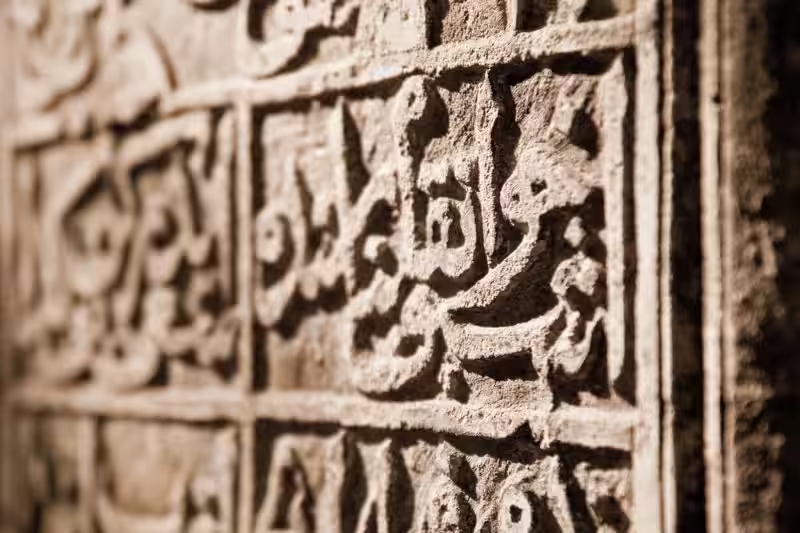
Arabic names, often captivating and melodic, hold a wealth of cultural significance. One element that frequently appears is the prefix “al,” sparking curiosity and sometimes confusion. This article delves into the intricacies of “al,” revealing its dual meanings and providing a deeper understanding of its role in Arabic names.
The Definite Article: “Al” as “The”
Imagine a name like “Ali al-Amin.” Here, “al” functions as the definite article, similar to “the” in English. It signifies that the name refers to a specific person or object. Therefore, “Ali al-Amin” translates to “Ali the Trustworthy,” indicating a character trait. “Al” can also denote the person’s origin or profession, as in “Mohammed al-Masri,” meaning “Mohammed the Egyptian,” or “Fahad al-Hakeem,” meaning “Fahad the Wise.”
This “al” is used extensively in Arabic, adding precision and clarity to language. It’s a subtle yet powerful tool that helps distinguish and categorize information, playing a vital role in expressing cultural nuances.
The Lineage Marker: “Al” as “Family”
Now, let’s consider “Abdulaziz al-Saud.” In this case, “al” holds a different meaning. Here, “al” signifies lineage, indicating that Abdulaziz belongs to the Saud family. It’s like saying “from the Saud family” or “of the Saud clan.” This “al” is crucial for understanding family connections and historical ties within Arabic culture.
This lineage marker “al” is particularly common in Saudi Arabia, where it signifies a strong sense of family unity and tradition. It’s a reminder of the importance of ancestry and legacy in Arabic culture.
Pronunciation Variations: “Al,” “El,” and “La”
While the most common pronunciation is “al,” regional variations exist. In Egypt and North Africa, “al” often becomes “el,” as in “Ahmed el-Sayed.” In the Maghreb region, “la” is commonly used, like “Yousef la-Ayoubi.” These pronunciation differences reflect the diverse linguistic landscape of the Arabic-speaking world.
It’s crucial to be aware of these variations to accurately understand and respect the nuances within Arabic names. Paying attention to pronunciation can enhance communication and foster cultural sensitivity.
Understanding “Al” for Effective Communication
Whether it’s “the,” “of the,” or “family,” “al” holds significant meaning in Arabic names. By understanding its dual meanings and pronunciation variations, we gain a deeper appreciation for Arabic culture and enhance our communication with Arabic speakers. It’s a reminder that language is a bridge to cultural understanding and that even seemingly small elements like “al” can reveal a wealth of meaning.
What is the meaning of AL in Arabic names?
What does “Al” mean in Arabic names?
The Arabic word “Al” is a common element in many Arabic names. It can have two distinct meanings, often causing confusion.
What is the first meaning of “Al”?
“Al” serves as the definite article in Arabic, similar to “the” in English. It signifies definiteness and can also indicate possession.
Can you give me some examples of the first meaning of “Al”?
- Ahmed Al Masri (Ahmed the Egyptian)
- Yakoub Al Jarrah (Jacob the Surgeon)
- Salim Al Dhaki (Salim the smart one)
What is the second meaning of “Al”?
This “Al” denotes lineage and signifies belonging to a specific family, clan, or tribe.
Can you give me some examples of the second meaning of “Al”?
- Abdelaziz Aal Saud (from the Saud tribe)
- Hamad Aal Thani (from the Thani tribe)
- Al Omran (family/tribe of Omran, a chapter in the Quran)
How is “Al” pronounced in different regions?
While “Al” is the typical pronunciation, “El” is used in Egypt and North Africa, and “La” is common in the Maghreb region.
- “Al” in Arabic names can mean “the” or “of the”, similar to the English definite article “the”.
- It can also signify possession, indicating a person’s origin, profession, or character trait.
- Examples of “Al” indicating origin include Ahmed Al Masri (Ahmed the Egyptian) and Saddam Al Tikriti (Saddam from Tikrit).
- Examples of “Al” indicating profession include Yakoub Al Jarrah (Jacob the Surgeon) and Ali Al Kimyai (Ali the Chemist).
- Examples of “Al” indicating character trait include Salim Al Dhaki (Salim the smart one).
- In some names like Salah Al Din, “Al” signifies possession, meaning “righteousness of the faith”.
- Another meaning of “Al” (spelled with an elongated “a” in Arabic) is “family”, “clan”, or “tribe”.
- This “Al” denotes lineage and signifies belonging to a specific family, clan, or tribe.
- Examples include Abdelaziz Aal Saud (from the Saud tribe) and Hamad Aal Thani (from the Thani tribe).
- The name “Al Omran” refers to the family/tribe of Omran, a chapter in the Quran.
- Pronunciation variations of “Al” exist: “El” is used in Egypt and North Africa, while “La” is common in the Maghreb region.
- Understanding the distinct meanings of “Al” in Arabic names is crucial for interpreting and comprehending them.








